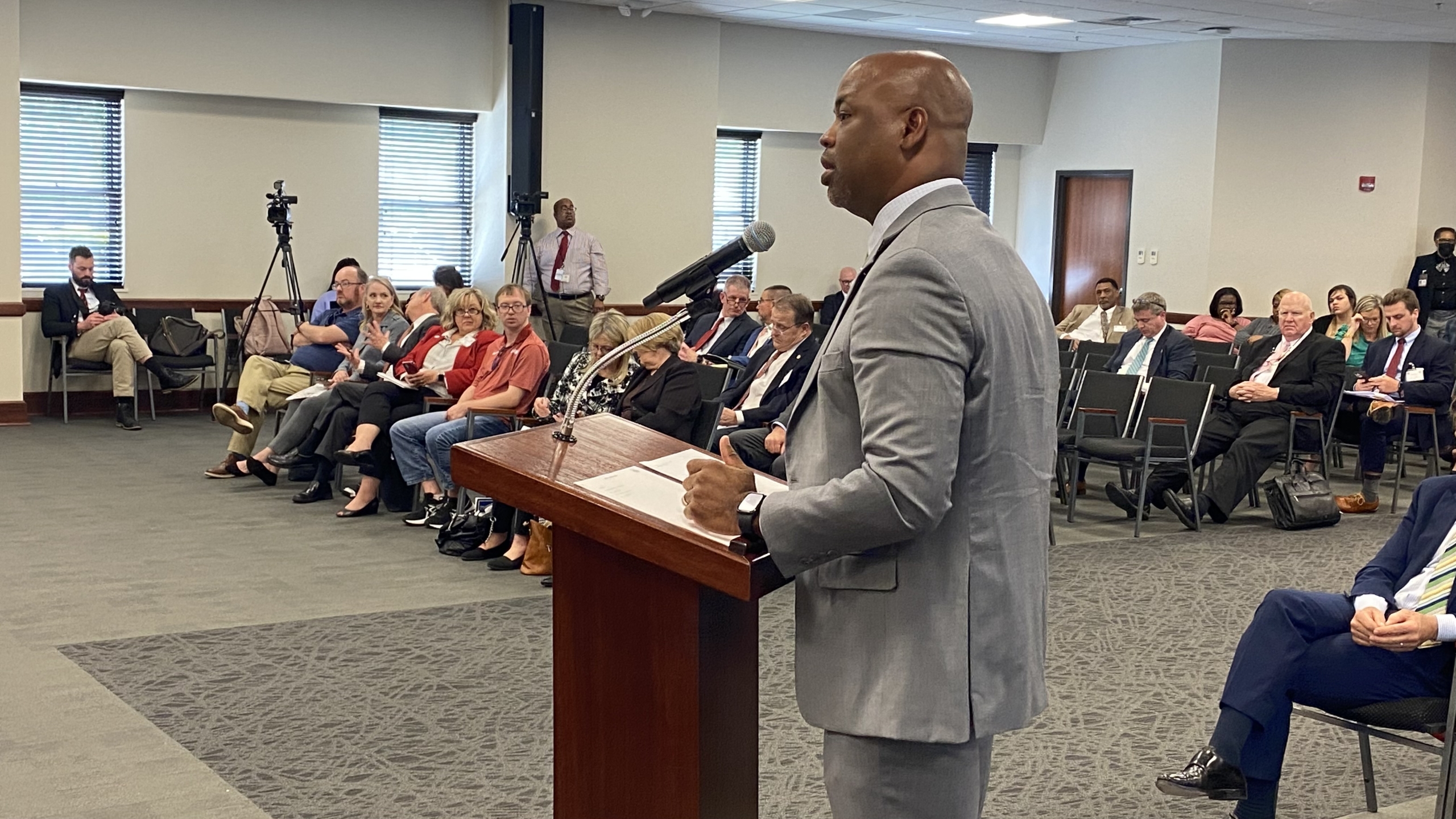Rep. Chris England, D-Tuscaloosa, came before the House Judiciary Committee Wednesday once again proposing a board to oversee the decisions made by the Alabama parole board.
The same House committee approved England’s bill just over a year ago, before Attorney General Steve Marshall released a statement in opposition, prompting England to withdraw the bill and have more conversations to make it palatable for passage.
At the time England’s bill passed committee last session, February 2022, the year-to-date percentage of paroles granted was 12 percent, according to a monthly statistical report from the Alabama Bureau of Pardons and Paroles.
A year later, that number has only continued it’s drastic descent— as of February 2023 the year-to-date percentage of paroles granted is 6 percent.
But freshman State Rep. Jerry Starnes, R-Prattville, challenged the concept that the declining percentages of paroles granted calls for oversight of the board.
“I’ve spent 25 years with Pardons and Paroles and I just want to say that it’s a hoax that the parole board is not releasing folks,” Starnes said. “We have mandatory release and they are being released left and right. Now, when the parole board considers somebody on parole, that offender is the bottom of the bottom. With that being said, I truly oppose this council, and I would like to move this forward to kill this council.”
Starnes is referencing the 2015 bill by then-senator Cam Ward, now director of the Bureau of Pardons and Paroles, that established the mandatory early supervised release provisions. Starnes spent 25 years in Pardons and Paroles, starting as a parole and probation officer and retiring as a district manager in November 2022.
England challenged Starnes’ characterization that mandatory release is just another form of parole.
“When we’re talking about parole, we’re talking about an applicant that fills out an application that goes before a board that makes a decision,” England said. “Our mandatory release that we just had—which went horribly, but the way, but I’m not gonna … we’re not going to talk about that—that was bade on a certain time served … this bill doesn’t have anything to do with the mandatory release component. It is two completely separate things.”
England criticized the downward trend in the percentage of paroles being granted, regardless of risk assessment.
In the past year since England first proposed the bill, the recommended parole approval rates have consistently hovered around 80 percent. Meanwhile, the board has continued to approve fewer and fewer people. In February 2022, the board was deviating from its own guidelines in about two out of three cases. Now they are failing to conform to those guidelines in about three out of four.
England’s bill would create the Criminal Justice Policy Development Council, tasked with creating guidelines for the parole board to follow. If the parole board chose to ignore those guidelines, the board must provide in writing a detailed explanation for departing from the guidelines, and the affected prisoner would have 30 days to begin an appeal process through the Court of Criminal Appeals.
Starnes reiterated that mandatory release has resulted in “the bottom of the bottom” coming before the parole board and that those people would have come before the parole board and had a higher likelihood to be released.
“I can’t even come up with a word to describe how inaccurate that is,” England said.
England countered that before 2019, parole approval rates were over 50 percent and that the downward trend correlates with the appointment of Leigh Gwathney as chair of the parole board.
Rep. Ben Robbins, R-Sylacauga, successfully added a friendly amendment to the bill, prior to Starens’ comments, that would add a ninth member to the council, to be appointed by the attorney general’s office. Robbins said an odd number on the council would help to resolve ties and that having a prosecutor or law enforcement interest in the body would add a valued perspective.
But after Starnes’ comments, vice chair Tim Wadsworth, R-Arley, moved to assign the bill to the criminal subcommittee, stating the bill could be “tightened up” and vote after spring break.
Other members of the committee also brought concerns about the bill, some of which had been voiced previously.
Rep. Matt Simpson, R-Daphne, said the bill would create another layer of bureaucracy. Other members voiced concerns including the likelihood of every applicant appealing when the board deviates from the guidelines, and that risk assessment measures aren’t always accurate in their predictions.

















































